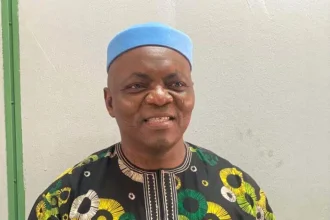The World Health Organization announced on Friday that it has, for the first time, approved an mpox vaccine, which is expected to speed up access to the shots needed to fight an ongoing epidemic in Africa.
The announcement followed the arrival of the first MVA-BN vaccines in the Democratic Republic of Congo, the epicenter of the outbreak.
“This first prequalification of a vaccine against mpox is an important step in our fight against the disease, both in the context of the current outbreaks in Africa, and in future,” said WHO chief Tedros Adhanom Ghebreyesus in a statement. “We now need urgent scale up in procurement, donations and rollout to ensure equitable access to vaccines where they are needed most… to prevent infections, stop transmission and save lives.”
The WHO’s prequalification listing assesses the quality, safety, and effectiveness of medical products like vaccines. This process helps the United Nations and other international agencies procure these products. It also allows lower-income countries, which may not have the resources to conduct their evaluations, to fast-track vaccine approvals.
“The WHO prequalification of the MVA-BN vaccine will help accelerate ongoing procurement of the mpox vaccines by governments and international agencies… on the frontlines of the ongoing emergency in Africa and beyond,” said Yukiko Nakatani, WHO’s assistant chief in charge of access to medicines and health products.
Mpox, previously known as monkeypox, is a virus transmitted to humans by infected animals but can also spread from person to person through close physical contact.
Symptoms include fever, muscle aches, and large, boil-like skin lesions, and the disease can be deadly in some cases.
Last month, WHO declared an international emergency over mpox due to a surge in cases of the new Clade 1b strain in the DRC that has spread to nearby countries.
The DRC has reported nearly 22,000 cases and 716 deaths linked to the virus since January.
So far, the DRC has received about 200,000 vaccine doses from the European Union and around 50,000 doses from the United States to help combat the epidemic.











